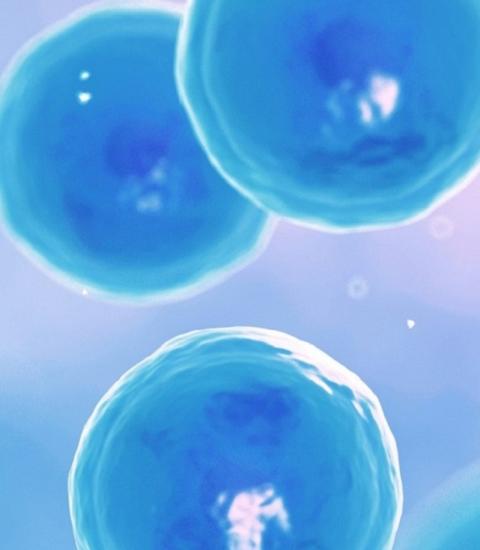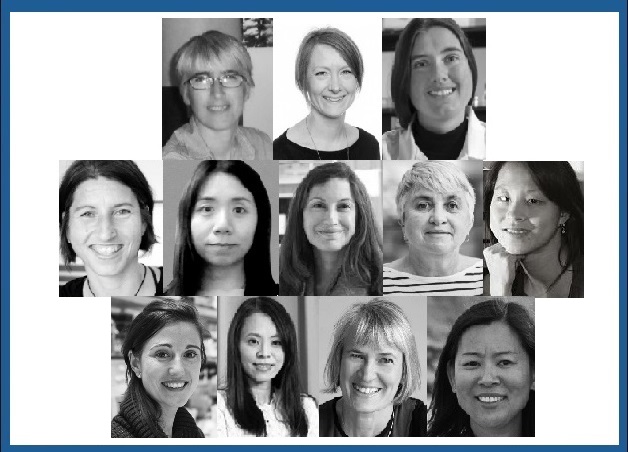Editorial Advisory Board members
We are also happy to acknowledge – and celebrate – our other female board members this post and below is the list of the Editorial Advisory Board members:

[by Carmel McNamara, IOS Press]
Amsterdam, NL – We are pleased to announce that, among the senior team of StemJournal (looking at the Senior Editor and Associate Editor positions), we have a 50:50 split between the number of men and women contributing their time and dedication to help build our journal. In this post, on International Women’s Day, we highlight the research areas of the female members of our senior team.
Efforts have been ongoing since the launch of StemJournal (STJ) to give due consideration to diversity within the journal team, in terms of gender, geography, and ethnicity. We strive for a healthy balance and, yes, we have a long way to go. Taking a look at the entire Editorial Board in terms of gender balance, the journal’s female representation currently stands at 37% across the board. When we hone in on the senior team, this percentage rises to 46%. By jointly considering those in Senior Editor and Associate Editor positions, we hit an even 50:50 split – women have 3 out of 5 of the Senior Editor roles and 9 out of 19 Associate Editor positions; so, combined, that comes to 12 out of 24 – an even 50%. We are acknowledging this fact on International Women’s Day and, in our way, doing our bit to forge the way for a gender equal world: “celebrate women's achievement, raise awareness against bias, take action for equality.” Of this initiative, STJ Associate Editor Louise Purton comments: “Supporting equity, diversity, and inclusivity is a cause that is very important to me, I appreciate that StemJournal is making this a priority.”

When the journal was launched, we began by introducing our senior team members and profiling them on this site. A few individuals have been introduced in this way and more profiles will be published in the future (these will be accessed via the board listing page here). Now, we share the details of our female senior team members (all pictured in the visual above) to highlight the various research areas covered.
Laurence Daheron, PhD, is the director of the Harvard Stem Cell Institute iPS Core Facility. She works with the leaders in the field to establish new disease-specific iPS lines for the international scientific community. The core facility also offers genome editing and specific lineage differentiation services.
Agnete Kirkeby, PhD, is a group leader of the group Human Neural Development at the Novo Nordisk Foundation Center for Stem Cell Biology (DanStem) at University of Copenhagen, Denmark, and is also affiliated to Lund University, Sweden. Her group at DanStem applies advanced microfluidic stem cell models and high throughput single cell RNA sequencing to study human neural lineage trajectories.
Stephanie Willerth, PhD, holds a Canada Research Chair in Biomedical Engineering at the University of Victoria where her interdisciplinary research laboratory investigates how to engineer neural tissue by combining pluripotent stem cells, controlled drug delivery, and biomaterial scaffolds.
Kristen Brennand, PhD, Is a researcher at Yale School of Medicine working with stem cell-based approaches and engineering strategies to study the impact of patient-specific variants across and between the cell types of the brain. The focus in her lab lies in resolving the complex interplay and the many risk variants linked to disease.
Qiurong Ding, PhD, is a researcher at the Shanghai Institute of Nutrition & Health Health where her focus is the genetic and epigenetic contributors to the hepatic differentiation of hPSCs, and stem cell disease models and animal models to study the pathophysiology of human liver metabolic diseases.
Jenna Galloway, PhD, is a researcher at the Massachusetts General Hospital where she works to expand molecular understanding of the formation and regeneration of tendons and ligaments. Her lab focuses on combining genetic and chemical screening with different model systems, such as zebrafish and stem cells, to identify essential regulators of tendon and ligament biology.
Lyn Healy, PhD, is a researcher at The Francis Crick Institute working in the Human Embryo and Stem Cell Unit.
Shannan Ho Sui, PhD, is a researcher at Harvard T.H. Chan School of Public Health working in the Department of Biostatistics. Her expertise includes data integration, data standards, next-generation sequence analysis, and transcriptional gene regulation, as well as pathogen bioinformatics.
Meritxell Huch, PhD, is a researcher at the Max Planck Institute of Molecular Cell Biology and Genetics where her work investigates tissue maintenance and repair, which depends on the ability of cells to respond to internal and external cues, proliferate, and differentiate into functional components. Current focus is on the liver and biological processes that control adult tissue homeostasis.
Kathy O. Lui, PhD, is a researcher at Chinese University of Hong Kong in the Department of Chemical Pathology where she is undertaking studies in the areas of immune cell mediated tissue regeneration, cardiovascular regeneration in diabetes, and development of checkpoint blocking antibodies for stem cell transplantation.
Louise E. Purton, PhD, is a researcher at St. Vincent’s Institute of Medical Research at the University of Melbourne where her focus is in the field of blood cells. She investigates blood cell-forming stem cells and the regulation of haematopoietic diseases, including leukaemia.
Wenli Yang, PhD, is the director of the iPSC Core Facility at Penn Institute for Regenerative Medicine and her work focuses on facilitating derivation of iPS cells from somatic cells and providing expertise and training to researchers in ES/iPS cell culture.
We are also happy to acknowledge – and celebrate – our other female board members this post and below is the list of the Editorial Advisory Board members:
Thank you to all for your work. We are still in the early days for StemJournal and appreciate the efforts that all our board members make to spread the word about our open access forum for stem cell research!